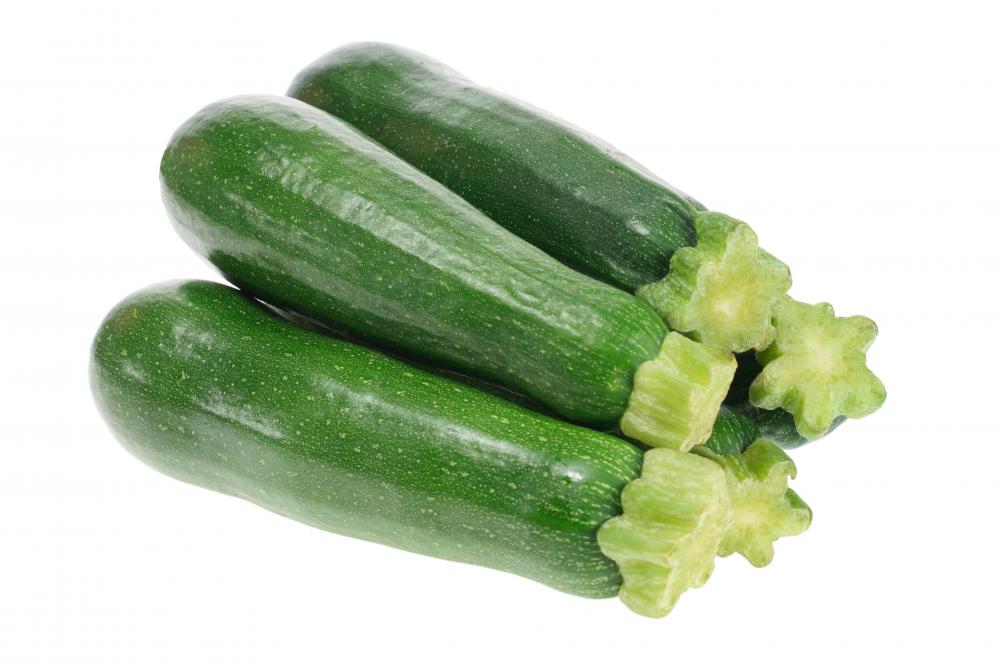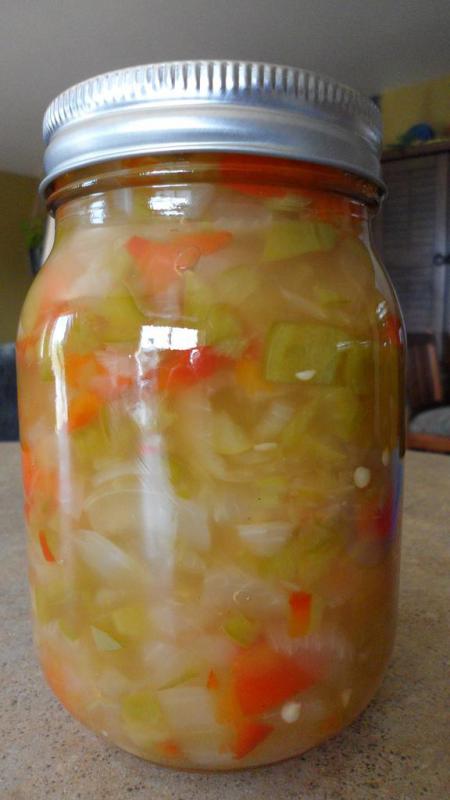At WiseGEEK, we're committed to delivering accurate, trustworthy information. Our expert-authored content is rigorously fact-checked and sourced from credible authorities. Discover how we uphold the highest standards in providing you with reliable knowledge.
What Are the Best Tips for Pickling Zucchini?
There are a number of things to keep in mind when making pickled zucchini. Starting with fresh produce that is free of any bruises or blemishes is one of the most important tips for pickling zucchini. Another is to make sure to use high quality ingredients that are appropriate for use with pickled vegetables. In order to keep zucchini pickles safe from bacteria, it is also important to use the proper containers and to make sure that everything is sterilized.
Choosing fresh, high quality zucchini fruits will yield the best pickled zucchini, no matter what recipe is used. The fruits should be uniform in shape and should not have spots or bruises on them. If there are blemishes on the fruits, they can be cut off and the rest of the zucchini can still be pickled. Depending on the recipe, it may be desirable to use small zucchinis that can be sliced into 1 inch (2.5 cm) disks or larger zucchinis that can be shredded and made into a zucchini pickle relish. No matter what size zucchinis the recipe calls for, one of the tips for making pickled zucchini turn out its best is to use plants which have been harvested no more than 24 hours before they are pickled.

Another important consideration when pickling zucchini is that the ingredients in the pickle are made to be used for this purpose. Salt, vinegar and water are simple and important ingredients to use when pickling zucchini, but there are some varieties of these things that should not be used. Table salt is not appropriate for pickling because it usually contains iodine, a chemical that can make the pickled zucchini go bad. Likewise, hard water may contain chemicals that lower the acidity of the zucchini pickle, which can lead to the growth of dangerous bacteria. Vinegars with low acidity may have a smoother flavor but may not make the pickle acidic enough to prevent the growth of bacteria.

When pickling zucchini, cooking and storing must be done in the proper types of containers. Only glass, stainless steel, aluminum, and ceramic should be used when pickling zucchini, as containers made from other materials, such as copper or iron, can react to the acids in the pickle. When jarring pickled zucchini, it is vital to use containers made for this purpose so that bacteria is not able to get into the pickle and sicken those who eat it.
AS FEATURED ON:
AS FEATURED ON:












Discuss this Article
Post your comments